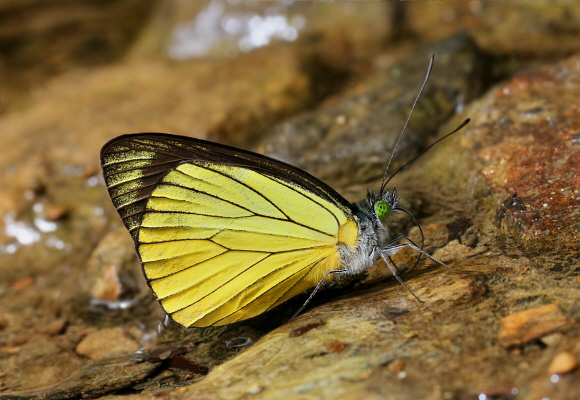 Leptophobia caesia tenuicornis, Tatama NP, Colombia – Adrian Hoskins
Leptophobia caesia tenuicornis, Tatama NP, Colombia – Adrian Hoskins
Introduction
In the neotropical region there are a total of 192 representatives of the subfamily Pierinae.The genus Leptophobia comprises of 20 currently known species. Three of these have only recently been discovered ( 2000-2003 ).
All the species have black markings on the upperside, which vary in extent from species to species – eloene for example is yellowish with black margins, aripa is white with a black apex, and caesia is bluish with broad suffused blackish borders and a diagonal blackish sub-apical band.
All Leptophobia are high altitude species, and are variously distributed from Costa Rica to Bolivia and Argentina.Leptophobia caesia is found from Costa Rica to Ecuador. There are 4 subspecies.
Habitats
This species is found in cloudforest, usually in the vicinity of streams or rivers at elevations between about 1300-2000 metres.
Lifecycle
I have no data regarding caesia but other Leptophobia species are known to use Capparidaceae, Brassicaceae and Tropaeolaceae as larval foodplants. These plants contain mustard oils so it seems likely that the larvae would be noxious to birds, and that these properties are passed to the adult butterflies. The eggs are spindle-shaped, yellowish in colour, and laid singly or in clusters of up to 20, according to species. The caterpillars are green, sometimes with blue or orange markings, and are slightly hairy. They live gregariously in groups of mixed instars.
Adult behaviour
This species is usually encountered in two’s and three’s in the vicinity of streams and waterfalls. It flies in the mid-canopy but males sometimes descend to imbibe mineralised moisture at the edge of streams.
